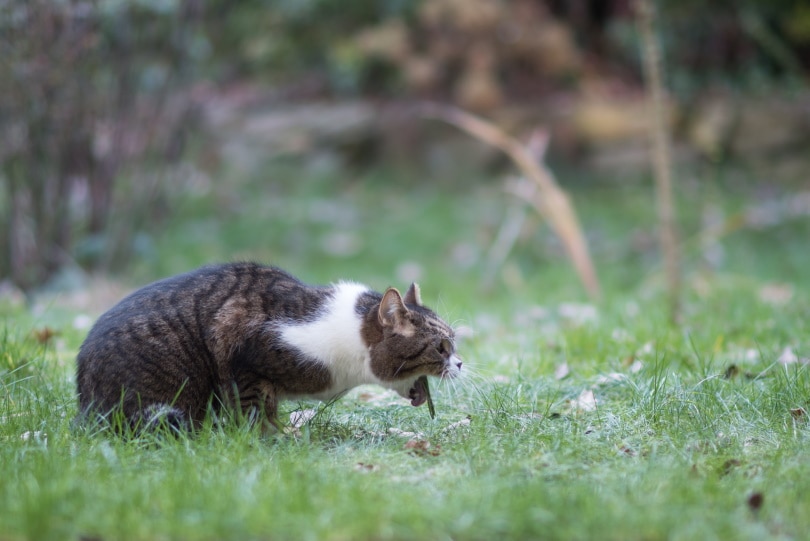
The sound of a cat throwing up will make almost any cat owner instantly move. Someone should make an alarm clock tone with that sound! However, your cat shouldn’t be throwing up every day. Even throwing up several times per month usually indicates some issue.
The first place to start is figuring out what’s making your cat vomit. From there, you can determine the best course of action to get them to stop. Even if your cat hasn’t contracted an illness, throwing up regularly isn’t good for its body!
The 4 Possible Reasons Your Cat Is Vomiting Frequently
1. Hairballs
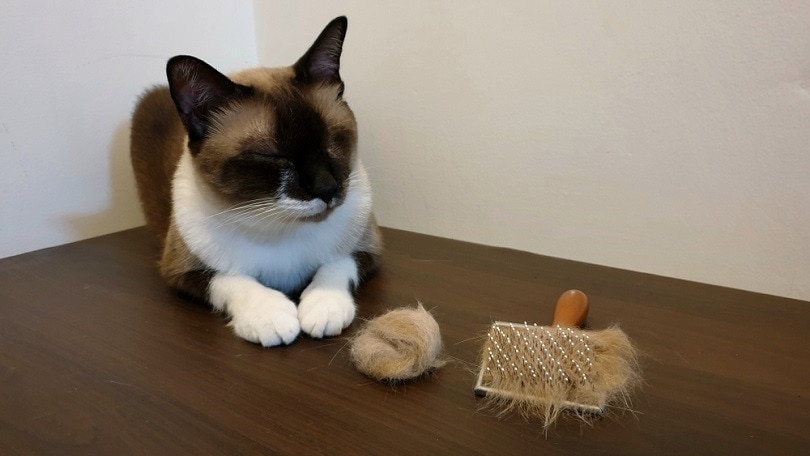
Probably the number one reason for frequent vomiting by cats is hairballs. Cats groom their bodies with their tongues, and, as a result, they ingest quite a bit of their own hair. Even though they eat it regularly and have since the beginning of time (probably…), they haven’t evolved to digest the hair they consume.
Since they can’t digest the hair, the fur in their stomach comes out the other end intact, or it’s supposed to. If too much hair builds up in the stomach for your cat to pass it through their intestines, they’ll purge the hair by vomiting it up onto the floor. It’s pretty gross, but it works overall!
When the hair reaches the ground, it’s not shaped like a ball. Instead, a hairball will probably look like an elongated tube of hair and mucus. Depending on the length of your cat’s coat and how long it’s been percolating in your cat’s stomach, the hairball could be several inches in length, further compounding its grossness.
Hairballs are generally a benign condition for cats, but it’s still not healthy to frequently vomit. If your cat has trouble with hairballs, consider an over-the-counter hairball remedy like Vet’s Best Chewable Tablets. These tablets lubricate the gastrointestinal tract to help move hair through the tract comfortably. They also contain a mild laxative to push the hair through the intestinal tract before it builds into a hairball.
Brushing your cat with a deshedding brush or comb can also help reduce the number of hairballs your cat throws up. A de-shedding tool will penetrate the undercoat to lift hair trapped in the undercoat out of the fur, reducing the amount of shed fur in your cat’s stomach.
If neither of these remedies helps your cat’s hairballs, please have them evaluated by a veterinarian to see if there might be another cause.
- Related Read: 4 Easy Home Remedies for Cat Hairballs (Vet Answer)
2. Eating Too Much
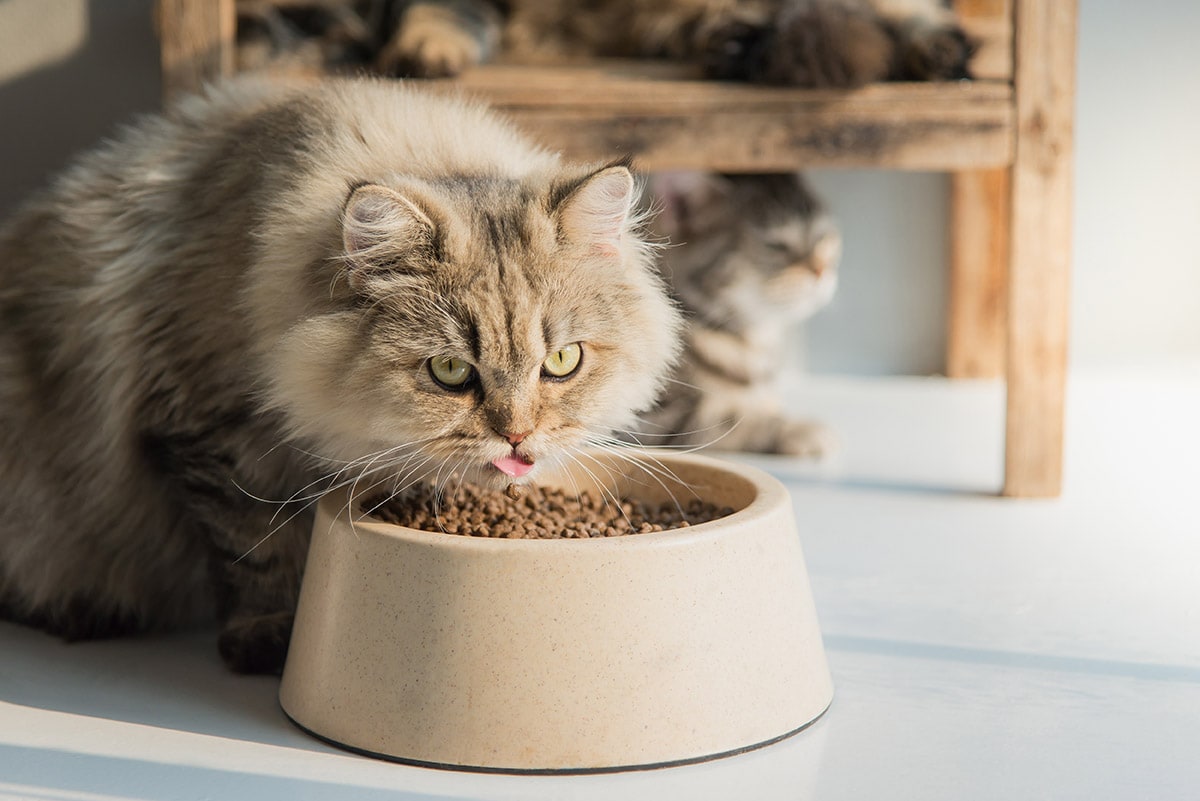
Cats are predators, and predators are naturally inclined to overeat when given a chance. Since predators have to hunt and hunting is never a guaranteed meal, they’re more inclined to fill their tummies when the opportunity arises to avoid accidental starvation should the hunt dry up.
By gaining an excessive amount of fat, your cat can theoretically survive longer in the wild. But in captivity, this behavior yields no fruit since they don’t burn the excess calories by hunting.
If your cat struggles with overeating, feed them set amounts and give them designated mealtimes. They won’t like it and will probably take to the streets to protest this grave injustice, but it will be better for their health in the long run.
You can also get your cat a feeder toy that forces them to play with it to get the food inside. This simulates the caloric burn induced by hunting and provides your cat with enrichment.
3. Eating Too Fast
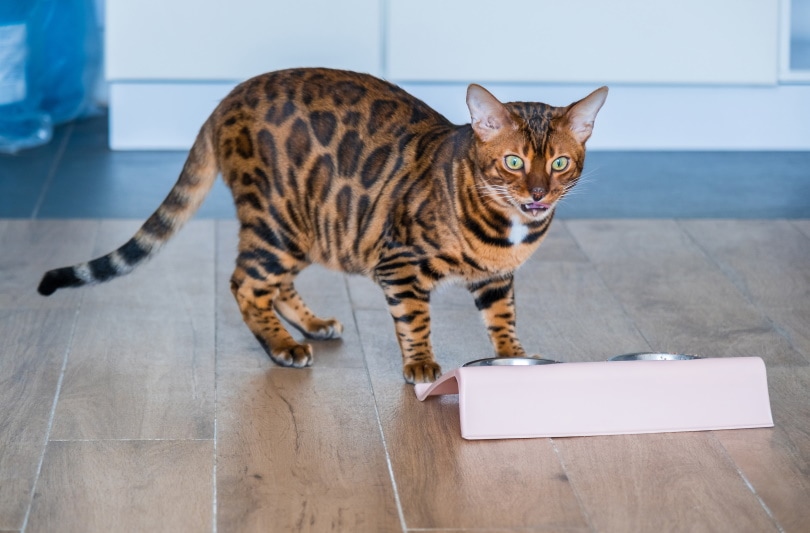
If your cat isn’t free-fed but is still vomiting often, they don’t have an issue with hairballs. Your cat may be eating too fast. In a cat’s world, any food they have could be taken right out from under them! While this isn’t as much of a risk in captivity, they haven’t evolved out of the behavior of eating as quickly as possible to avoid becoming the meal of an opportunistic predator.
If your cat eats too quickly, they may overload their stomach and make themselves sick by accident. You can use many solutions to help your cat eat slower but understand that this is an evolutionary trait that serves cats well in the wild. They aren’t doing it to frustrate you!
One way to prevent your cat from eating too fast is using feeder puzzles. Feeder puzzles allow your cat to eat the same amount but force them to slow down because they’ll have to solve the puzzle to get the food.
Simple feeder puzzles can be made at home using materials like an egg carton, an ice tray, or a pear box. More advanced puzzles can be purchased or made at home using everyday items like Ikea chairs and plastic bottles.
You can also make your cat “hunt” for their food by hiding small portions around the house and letting them “hunt” for it. However, this is a pretty significant time investment and may be unattainable for cat owners with busy schedules.
If your cat likes to “hunt,” but you don’t have time to hide their food, consider a feeder toy they can play with to get their food!
4. Illness
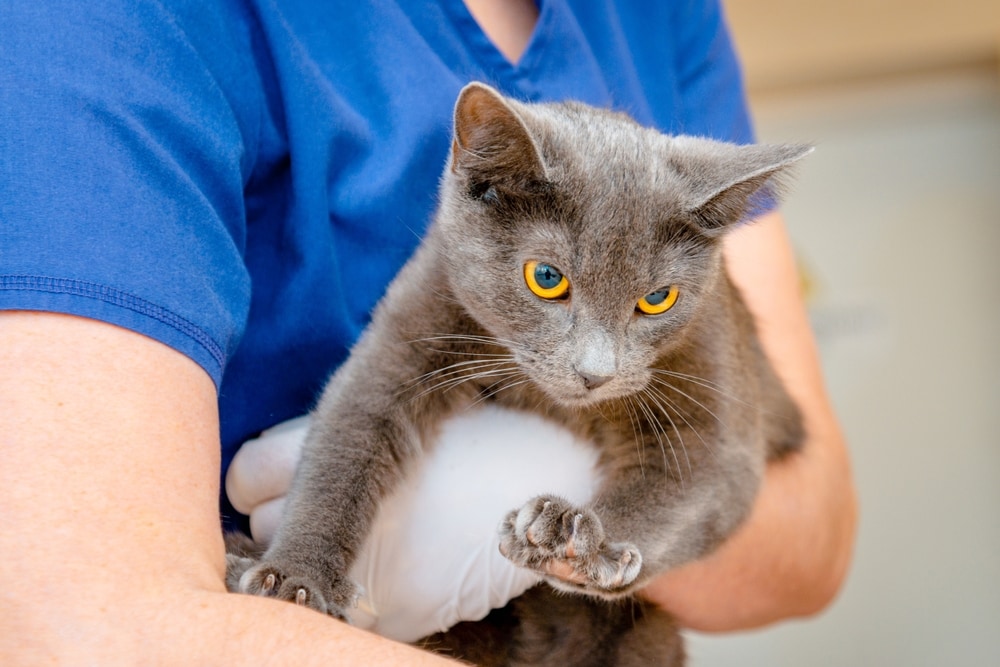
Cats may also vomit regularly if they have an illness. Many illnesses can cause vomiting in cats. So, a trip to the vet to be safe is probably worth the time and effort, even if your cat isn’t showing any other signs of illness.
The following illnesses and conditions are often linked to repeated vomiting in cats:
How to Help Your Cat Get Healthy Again
Take them to the veterinarian. A veterinarian can diagnose and treat whatever illness your cat is struggling with.
Final Thoughts
Repeated vomiting can be a big struggle for pet owners who have to deal with it. Luckily, many benign answers are easy to solve that might be causing your cat to have an upset stomach.
As always, we recommend a trip to your vet if your cat has started vomiting regularly, just in case. It’s always better to be safe than sorry. Your vet can help determine what kind of treatment your cat needs to get them feeling better!
Featured Image Credit: Nils Jacobi, Shutterstock







